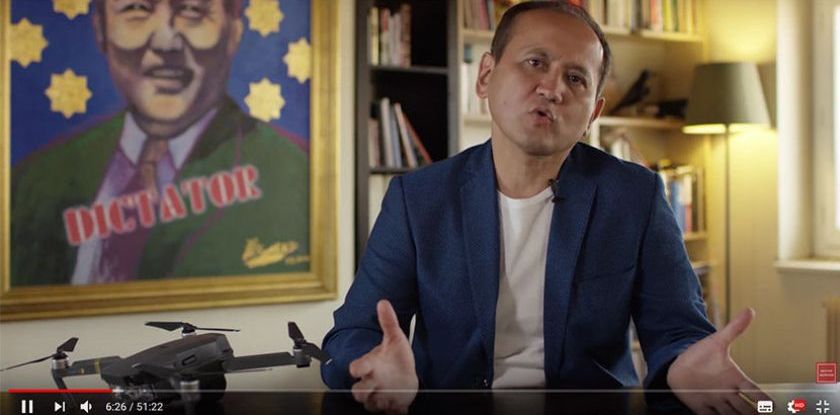A couple of weeks ago, Akorda’s chief political opponent Mukhtar Ablyazov currently living in France and communicating with his allies online released on the social media an investigative film on Timur Kulibayev, a person form Nursultan Nazarbayev’s closest circle.
As of the morning of November 1 (in other words, in two days after the release) the total number of the film viewings on different venues had climbed above 400 thousand, said Mukhtar Ablyazov on his Facebook page. It means that a new threat is emerging for Akorda and Nursultan Nazarbayev personally since the chosen format is much easier to understand and more attractive for a wider Kazakh audience than the previous live streams on that same Facebook.

The main changes in Mukhtar Ablyazov’s tactics include the following. First, he is now striking not only at President Nazarbayev, the authoritarian political system, and the “super-presidential state vertical but also at the concrete figures. He has started with a secondary persona while promising to get to the major Akorda’s players later.
Second, the “quality” of the attack has improved. For the first time since Mukhtar Ablyazov’s release from the French prison, he has offered an altogether high-quality propaganda product to the Kazakh citizens. Of course, it still gets outplayed by the films of Russian blogger and investigator Alexey Navalny, however, for the unspoiled Kazakhstan audience, even this is sensational.
Of course, there are some points that deserve criticism. For instance, according to the experts we interviewed, Mukhtar Ablyazov looks artificially on camera meeting that same Navalny half way but this, however, can be explained by his long-time isolation from the direct (live) communication with the audience and by the absence of practice. The text Mukhtar Ablyazov is reading aloud on camera is not created in the TV format, therefore, it is a little overwritten and difficult to articulate. At the same time, unlike the previous videos, the KazMunayDiaz film has a professionally created cover and music score, and the lighting is done quite skillfully.
Thus, despite some questionable moments (there are a few of them but we see no point in listing them all), the film turned out to be quite resonant. Not surprisingly, it was shown on Russian TV channel “Dozhd” whose editors had even interviewed the fallen out of grace (in Russia, too) politician. It means that Ablyazov, in his informational war with Nursultan Nazarbayev and his administration, has moved to a new, more qualitative level. Akorda will have to seriously think about how it can (if it can) match it.




